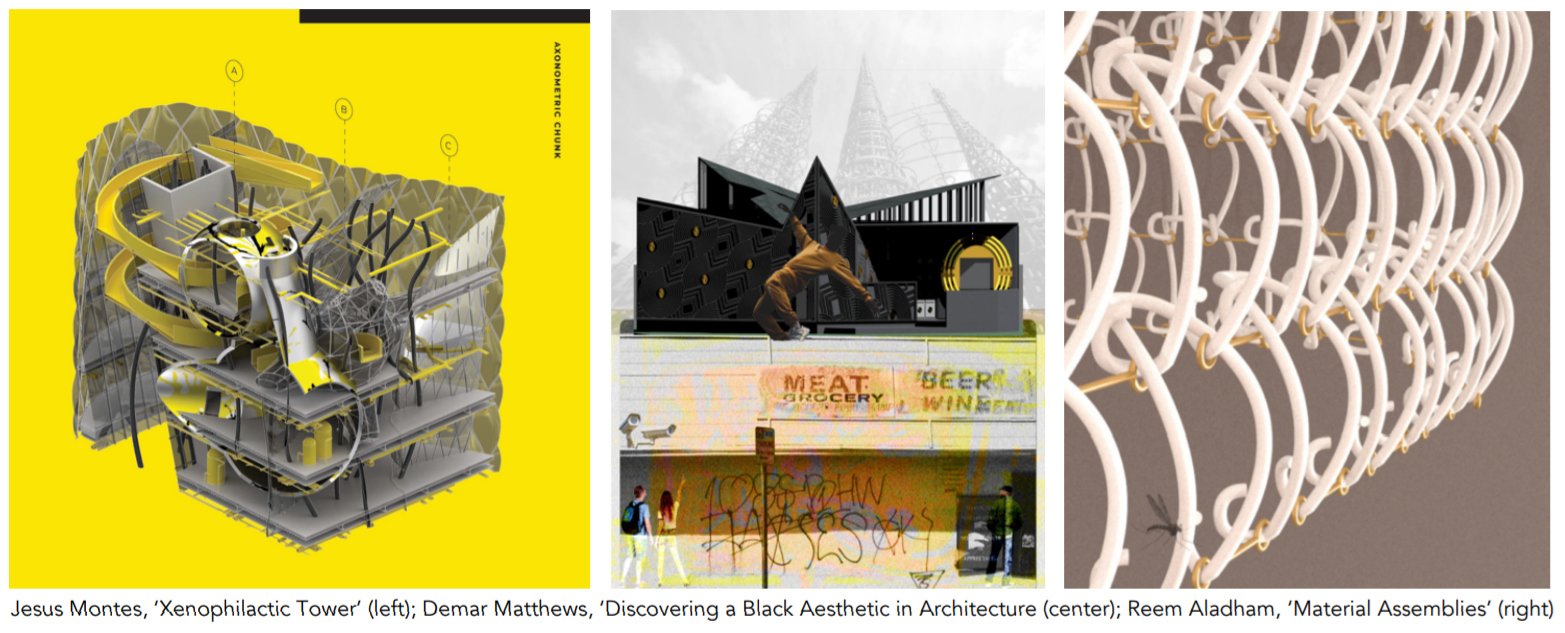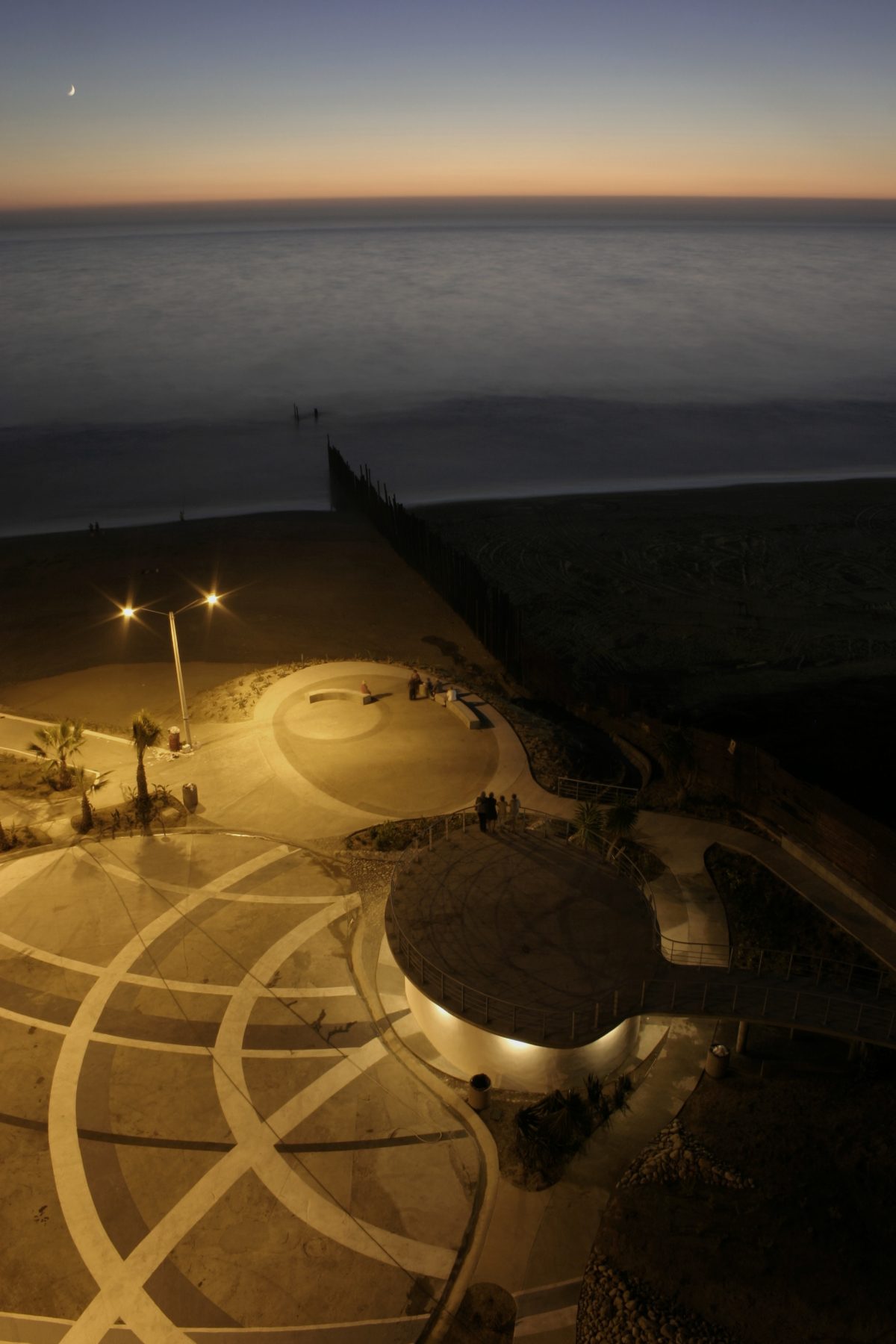Woodbury School of Architecture Announces Year of Climate Justice
As an institution of higher learning, we are both complicit in systemic inequality and a potential incubator for its disruption. We at Woodbury School of Architecture choose disruption.
As architects and designers, we must do more than acknowledge the fact that injustice is imbedded in the spatial systems that we design. As Bryan Lee Jr. reminds us in his article “Americas Cities were Designed to Oppress”, “For nearly every injustice in the world, there is an architecture that has been planned and designed to perpetuate it.” Our challenge is to design environments, spaces, buildings and cities that prioritize the long-term health of all our communities and combat the systemic racism embodied in our built environments. That is why our call this year is for the School of Architecture to address climate justice.

Climate change is a form of social injustice. A disproportionate burden of the effects of climate change are carried by Black, Indigenous and people of color (BIPOC) communities and low-income groups. The authors of the Green New Deal recognize that rethinking the conflicting relationships between natural systems and man-made ones, between our needs and the needs of the planet, must include social rearrangement. Our current built environment is a physical embodiment of the global carbon-intensive fossil fuel economy. While architecture, planning and the building community are responsible for the majority of global CO2 emissions, it is not enough to disrupt the current energy paradigm through new architectural forms and technological fixes. Decarbonization – remaining within the resources that Earth can provide – is a multifaceted project that encompasses a host of other disciplines – ecology, politics, economics, to name a few – as well as the design of the built environment. As architect and geographer Rania Ghosn states, “the architectural project becomes the medium to synthesize disciplines and address complex environmental questions, such as space debris, soil erosion, air pollution, freshwater shortage, energy transition, and a host of other chronic social-ecological issues.” She and her partner El Hadi Jazairy seek to “reimagine the world in ways that generate inquisitive, delightful, and potentially subversive responses.” We do too.
For meaningful change to happen, each of us needs to work together to invent sustainable strategies for disrupting the forces of environmental injustice. Change must happen at every scale, step-by-step, social and formal, by rethinking concepts, tools, technologies, materials, social and urban organizations and systems. Our goal is to provide our students with the tools to lead the conversation and implement a new vision for climate justice.
 Faculty Grants
Faculty Grants
The 2020-21 School of Architecture Lecture Series will be devoted to Climate Justice. To encourage and support research in this area, approximately $10,000 in grant funding will be made available to all School of Architecture faculty.
Faculty are invited to submit proposals for the courses they are scheduled to teach in the coming academic year that incorporate BIPOC perspectives as they relate to climate justice. These perspectives might represent a range of new or suppressed voices, from technical expert or community activist, to designers grappling with pandemic-related changes to the spaces we inhabit. A portion of the grants will pay BIPOC speakers, or those focused on BIPOC issues, to present research and/or work related to environmental justice as part of the lecture series.
July 17: Faculty are invited to submit a one-page summary that includes their Fall 2020 or Spring 2021 course topic along with a brief project description, biography of the speaker they would like to invite, and estimated budget. Please send proposals by the end of the day to [email protected] (LA) or [email protected] (SD).
July 24: Faculty are notified of the award and asked to invite the speaker as part of the 2020-21 Lecture Series.
August 3: Woodbury School of Architecture 2020-21 Lecture Series finalized
Note: The intention is to provide multiple small grants. The total number and amounts will be adjusted depending on the number of proposals and their details.
Student Awards
In the spring, $10,000 will be awarded to students for projects addressing climate change, environmental justice and BIPOC perspectives. Details of student award criteria will be determined after the faculty grants have been awarded.